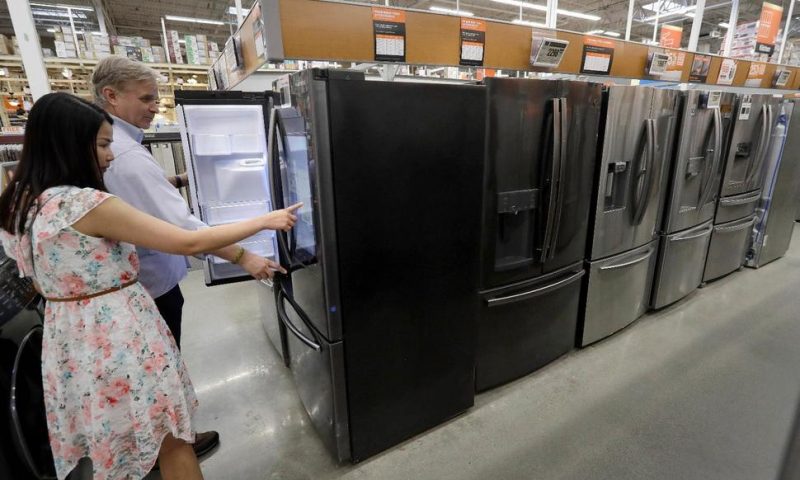US retail sales fall 0.3% in September, biggest decline in 7 months.
WASHINGTON — Retail sales dropped in September by the largest amount in seven months, possibly signaling that rising trade tensions and turbulent markets are having an impact on consumer spending.
Retail sales fell 0.3% last month following a 0.6% gain in August, the Commerce Department reported Wednesday. It was the first decline since a 0.5% drop in February.
Consumer spending was strong in the spring and economists had been counting on continued strength to protect the U.S. economy as it is buffeted by the fallout from President Donald Trump’s trade war with China.
The spending decline in October, which was unexpected, was influenced by special factors including a big 0.7% decline in sales at gasoline stations, a decline that likely reflected falling gas prices during the month.
The overall economy grew at a 2% annual rate in the April-June quarter with much of that strength coming from a 4.6% surge in consumer spending, which accounts for about 70% of economic activity.
That spending pace had been expected to slow in the July-September quarter but still remain strong enough to support economic growth near the 2% rate seen in the spring.
But some economists are worried that a slowing global economy and the adverse impact of the U.S.-China trade war could slow overall growth so much that the country could see an increasing risk of a recession ending the current record-long U.S. expansion, which began in June 2009.
“It looks like the trade war has claimed yet another victim, in addition to diminished business confidence and reduced investment spending, … consumers are starting to chicken out,” said Chris Rupkey, chief financial economist at MUFG in New York.
Many economists said the disappointing retail sales performance would make it more likely that the Federal Reserve will cut interest rates in October for a third time this year to buy more insurance against a recession when they meet later this month.
Michael Pearce, senior U.S. economist at Capital Economics, said while there were special factors affecting the weak September sales performance, the report contained clear signs that consumption growth is slowing.
He said the report was consistent with his view that the overall economy will continue to slow to a rate of just 1% by the final three months of this year. He said that will prompt the Fed to cut rates again but not until the December meeting.
In addition to the drop in gasoline sales, sales of autos fell 0.9% in September after a solid 1.9% increase in August.
Sales at department stores were down 1.4% while sales at general merchandise stores, which include chain retailers such as Walmart and Target, fell 0.3%.
Sales also dropped at hardware stores, grocery stores and sporting goods stores. Clothing stores, restaurants and health care stores all saw increases.
Sales in a retail control group which focuses on key components that go into computations of GDP were unchanged in September after a 0.3% gain in August.

